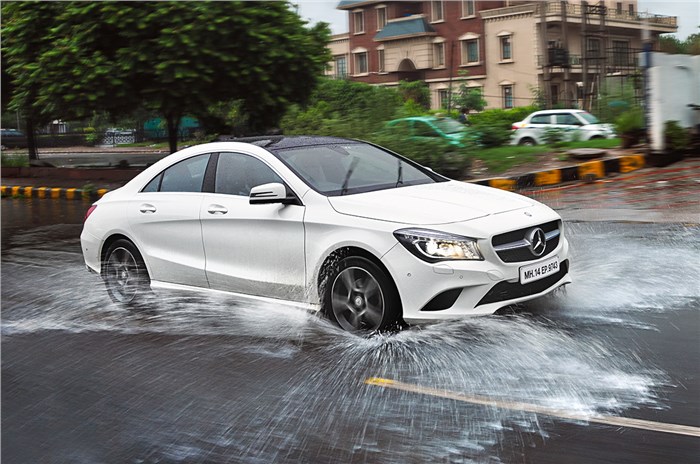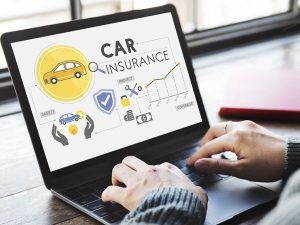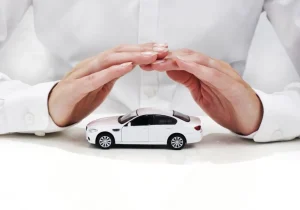Auto Insurance: How to prepare your car for the upcoming monsoon season
We all have been facing the water logging problem every monsoon season and although much has been done about it, we are likely to reencounter the problem every time it rains heavily. Monsoons are here, and to face the monsoon season we must get our vehicles checked before we get out to face the noisier messier commotions on our roads.
After all, you do not want to be stranded on the road with the rains coming down on you. There are a few tips that can help you sail through the monsoon season and enjoy the plush greenery while out on a drive.
Look for Necessary Add-ons
While add-ons like Zero Depreciation, Key and Lock Replacement Cover and Return to Invoice are some of the very common and prominent add-ons that most car owners chose, there are some lesser-known add-ons as well that are important and prove to be beneficial during the monsoon season. It is significant to look under the hood of each of these additional covers to understand what they offer and how they work.
Engine Protection
One must know that damage to the engine is never covered under a motor insurance policy. It is only covered in case you have taken an engine protection add-on along with the comprehensive motor insurance policy. For instance, if you are outside on a rainy day where water gets into the engine of your car and damages it, a standard car policy would not give you the cost of its repair. Similarly, any damage caused to the engine due to the driving of the car without engine oil suffered due to any road bumps, will not be payable by your insurer. Since engine repairs cost a lot of money, one must think of buying the engine protection add-on tailored specifically for engine damages caused due to water ingression and oil leaks. This add-on is a must-have insurance feature to save a substantial amount of money at a nominal premium cost of 0.15% to 0.20% of the Insured Declared Value (IDV).
Roadside Assistance
Suppose you are going for urgent work and your car runs out of petrol or gets a flat tyre, or your vehicle breaks down for some reason at a secluded spot — in all such situations you might have to go through unnecessary trouble e.g. spending extended hours on roads being stranded or finding appropriate solutions. Roadside Assistance add-on was devised keeping such situations in mind where the insurer comes to your help immediately. Even in the case where, by mistake, you lock your car doors without taking the car key out, your insurer will send an executive to your house to pick the duplicate key and deliver the same to you at the spot where you are stuck. This add-on also comes at a nominal cost of Rs 150 – 500, depending upon the IDV of your vehicle.
One of the most beneficial aspects of this add-on is that it is treated as a service and is not counted against claim irrespective of how many times you avail the benefit.
Check for Monsoon Related Car Accessories
Headlights
As lights get absorbed on wet roads, it is always best to have bright lights. Check that your bulb is of good quality. It is best to have auxiliary lights if the inherent lights are not strong enough. Yellow lights are good for the wet roads– while fog lights do not cover distant objects. But you must be careful in selecting the lights as you do not want to get a high powered light that hampers the visibility of other drivers. Also make sure that you have your taillights working.
Wiper Care
Due to the muck and grime in the air these days, the wipers get infused with all the dirt. It is best to clean it properly with soap water. Make sure that the wipers are of good quality and are not scratching your windshield having been damaged after the summer heat. It should provide you with good visibility during a downpour. You must check the wipers for proper functioning at all speeds.
Mud Flaps and Rubber Mats
You don’t want to be driving behind a car that is lashing out mud at you. It is always good to have your mud flaps for all four of your tyres in place for the convenience of others. Also, make sure you have checked for the rubber mats else the water getting onto your car carpet will leave it smelling damp.
Filing a Motor Claim During Monsoon Season
Every year during the monsoon season, there are several cases of vehicles being completely submerged in the floods and suffering heavy damage. During such a situation, people having comprehensive motor insurance can easily get away from the mess as their insurer pays for all the damages caused to the vehicle. However, people who do not have a comprehensive motor insurance policy have to themselves bear all the expense incurred for repair of the vehicle.
With the right motor insurance policy in place, you can easily save yourself from the unwanted financial expenses for getting your vehicle repaired due to heavy rains or floods. However, in order to make a successful claim, it is very important to follow the right claim process. Following the right claim, the process is as important as having a valid insurance policy as insurers have every right to reject your claim if the right process is not followed. Hence, it is very important that one must be well aware of the right claim filing process.
If you want to make sure you are eligible to claim insurance for flood damage to your vehicle, never ever attempt to start a submerged vehicle. Rather, try to click some pictures and make videos of the vehicle as these will work as prima facie evidence of the damage caused to the vehicle. Trying to start your vehicle may damage its engine and one must know that damage to the engine is never covered under a motor insurance policy. It is only covered in case you have taken an engine protection add-on along with the comprehensive motor insurance policy.
The next important thing to do is inform the insurance company as soon as possible by calling on their helpline/toll-free/ customer care and they can help you get the affected vehicle towed to the nearest cashless service centre. In case your vehicle gets washed away because of intense floods, you do not need to worry. For the benefit of the customers, insurers under such situations just ask for the policy documents and even if a hard copy of the documents is not available, you may present a soft copy of the documents.



